On the 12th January 2022, the Herbal Research Group organized and hosted its 1st Herbal Research Seminar Series 2022 which was held online via Zoom. Associate Professor Dr. Amin Malik Shah from John Curtin School of Medical Research, Australian National University and Department of Pharmacology, School of Pharmaceutical Sciences, Universiti Sains Malaysia (USM), Chairman of Eman Research and the Group CEO NatureCeuticals Pty Ltd was invited as the guest speaker for the seminar where he presented a compelling lecture on “Botanical Drug for Cancer Therapy”. A total of 42 participants attended the event including the staff and students from UBD, IBER, Universiti Sains Malaysia and Eman Biodiscoveries Sdn Bhd.
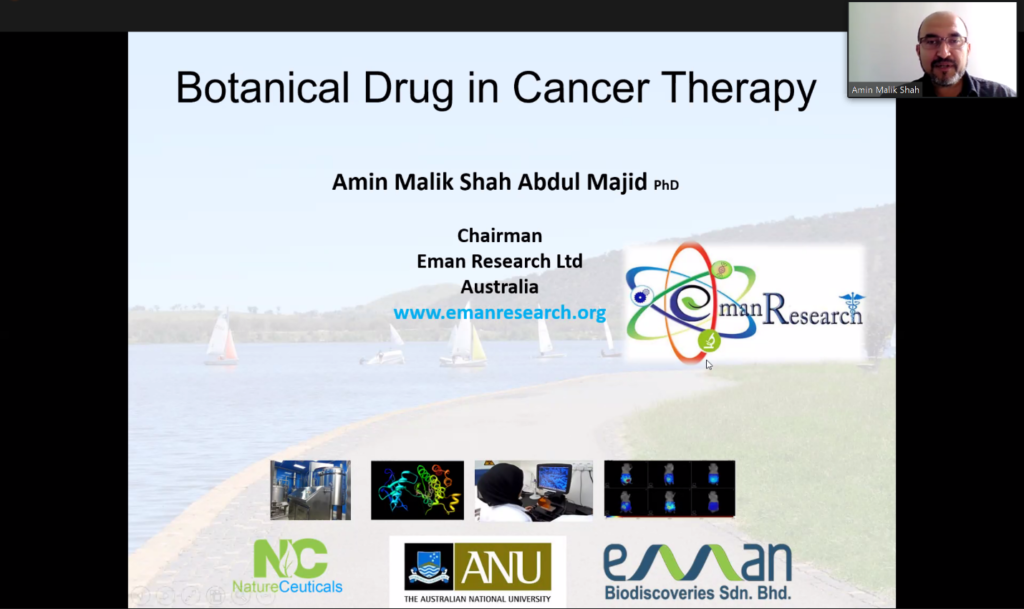
To start off the seminar, Dr. Amin shared with the audience, statistics on the increasing trend of cancer cases and cancer-related deaths worldwide, along with a brief explanation of cancer and the risk factors that cause cancer which include lifestyle, disease and environmental hazards. He then discussed that cancers can also grow and persist through sustained angiogenesis, as cancer cells would be able to obtain nourishment from surrounding blood vessels to grow and spread further.
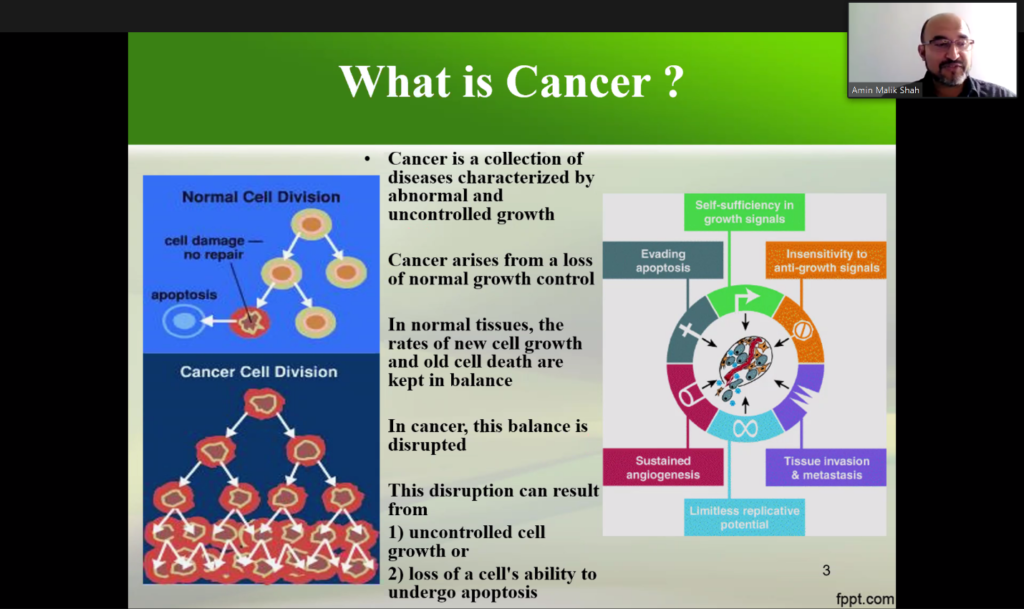
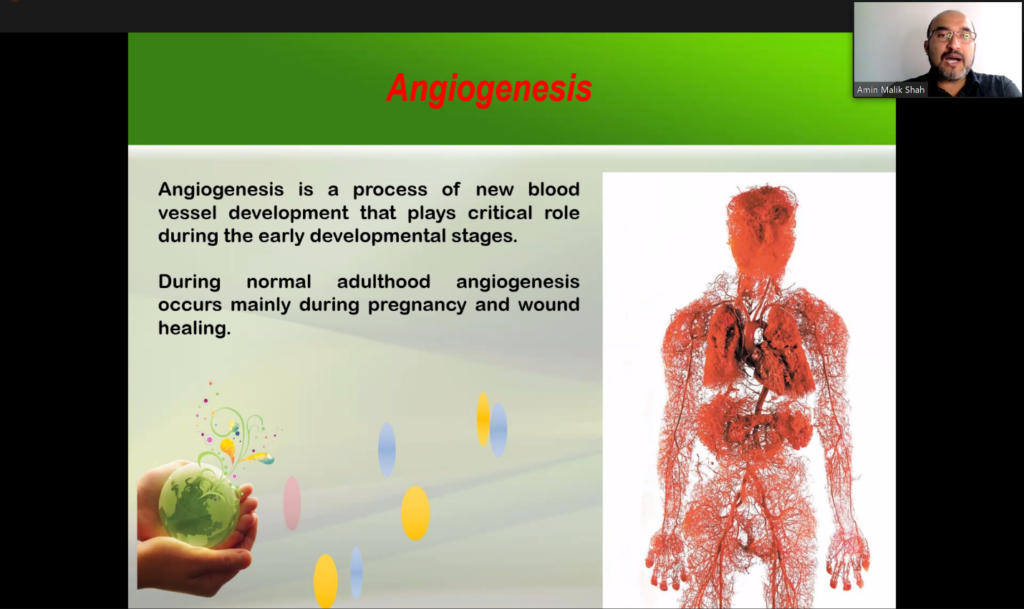
Dr Amin explained that it is important to identify the active compounds that give the biological activity or anti-cancer activity. This can be done using two general methods, one of which is by isolating the active compound from the crude extract. However, with this method, the more the compound is isolated the less effective it may become due to reduced synergism from other compounds. Isolation of active compounds may also increase their risk of toxicity. Alternatively, standardized extract may be obtained, whereby the presence of the active compound at a certain level and/or the anti-cancer activity of the extract are maintained within the targeted levels. Dr. Amin also pointed out the criteria for selection of herbs for his research. Firstly, the herb must be safe to use or consume. It is also desirable that the herb contains active compound that have high anti-oxidant, anti-inflammatory and anti-angiogenic activity. The herb would also need to undergo stability studies to ensure the active compound is present and has a long shelf life to last during the research. As his team also produces mass product, the herb will also need to be able to grow fast, resistant to pests and have a good yield.
Dr. Amin highlighted that his research team investigates Orthosiphon stamineus (Cat Whiskers Herb) (Malay: “Misai Kuching”) as the main sample of interest, where a screening test was initially conducted on various extracts of the herb. They found that the herb, extracted in different ratio of water and ethanol, can improve anti-angiogenic activity whereby the formation of new blood vessel was inhibited in a dose-dependent manner. Rosmarinic acid was identified as the main active compound in the herbal extract as it is present at high concentrations in the extract and exhibited high anti-angiogenic activity. Through further investigation, they discovered that the herb affected angiogenesis via inhibition of endothelial cells formation and cell migration.
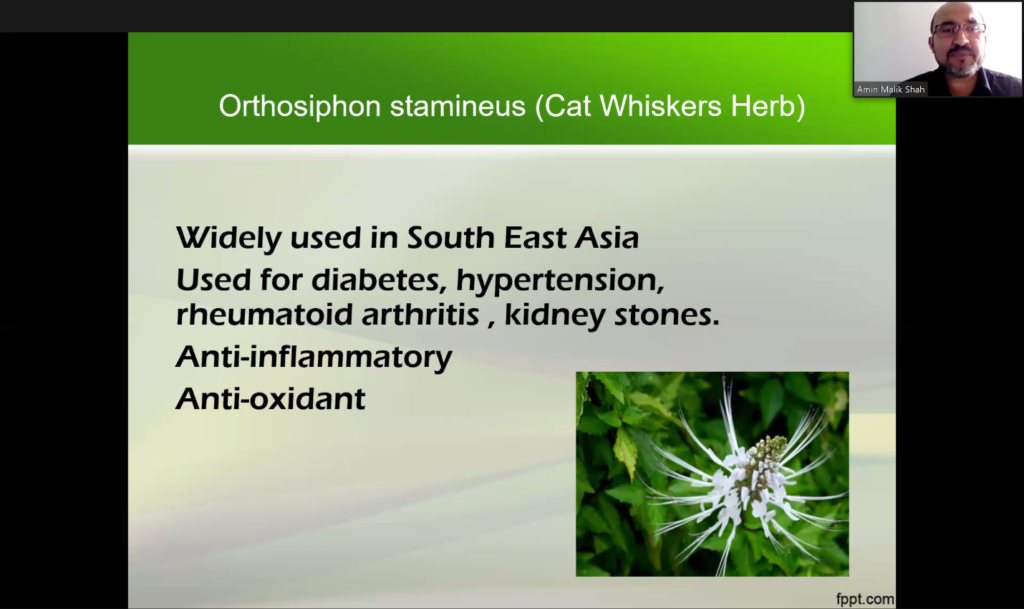
Dr. Amin shared that his research teams have employed various assays to evaluate the anti-angiogenic properties of the Cat Whiskers Herb extract. One method involved the use of chicken embryo, where the reduction of blood vessel formation was observed following the introduction of the extract into 10-days old fertilized chicken egg embryo. Other methods include in vitro solid tumor assay (Spheroid assay), ex vivo assay (rat aortic assay) and in vivo assays (Matrigel Plug assay and ectopic tumor implantation into nude mice). The results showed that, with an increase in dosage of the extract, it can reduce tumor sizes and deprive the tumor of nutrients due to lessened blood vessels. An attempted method called Orthotopic implantation was used to mimic real cancer environment. With the use of a machine called fluorescence molecular topography they were able to differentiate tumor activity. A long-term survival study was also performed, to investigate the effect of extract on the tumor. Dr. Amin and his team also explored the effect of the same extract on different tumor such as skin cancer (melanoma), lung cancer, cervical cancer, pancreatic cancer, prostate cancer, brain tumor, etc. During the process of their research, they have encountered various challenges when developing the herbal drug. This includes but are not limited to understanding of regulatory restriction, clinical trial strategy, quality assurance of the raw material and the manufacturing process challenges.
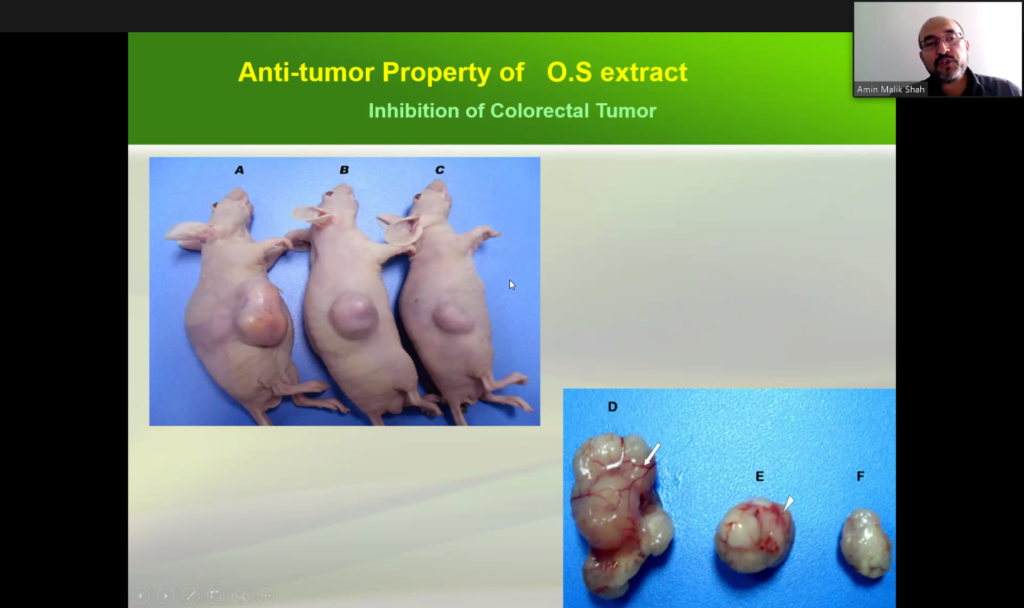
The seminar was then followed with a quick question and answer sessions with the participants attended. By the end of the seminar series, a brief photo session was taken with the guest speaker, organizers, and participants.
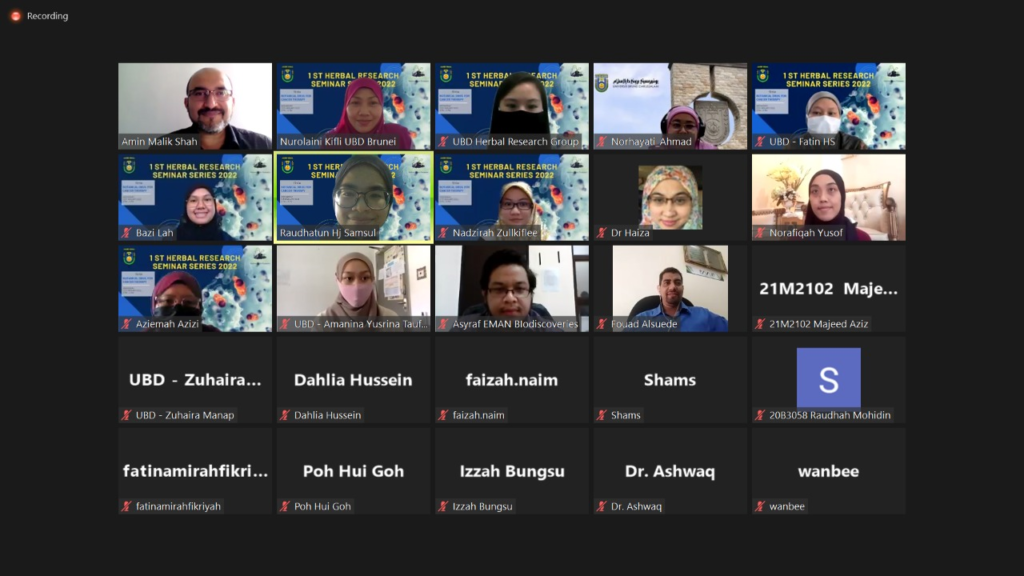
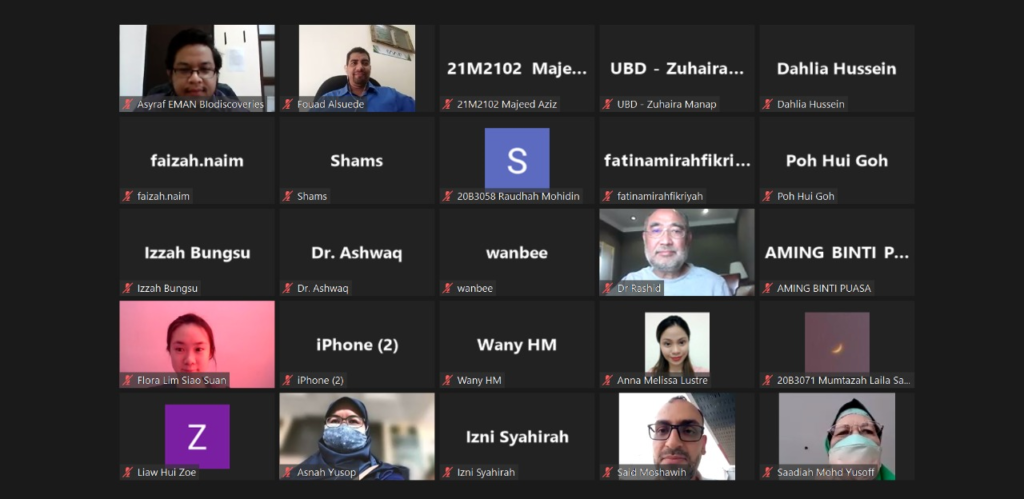
For the video recording of the 1st Herbal Research Seminar Series 2022, please see below:

